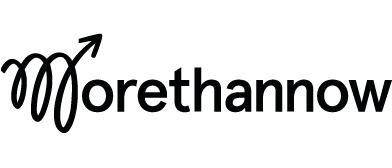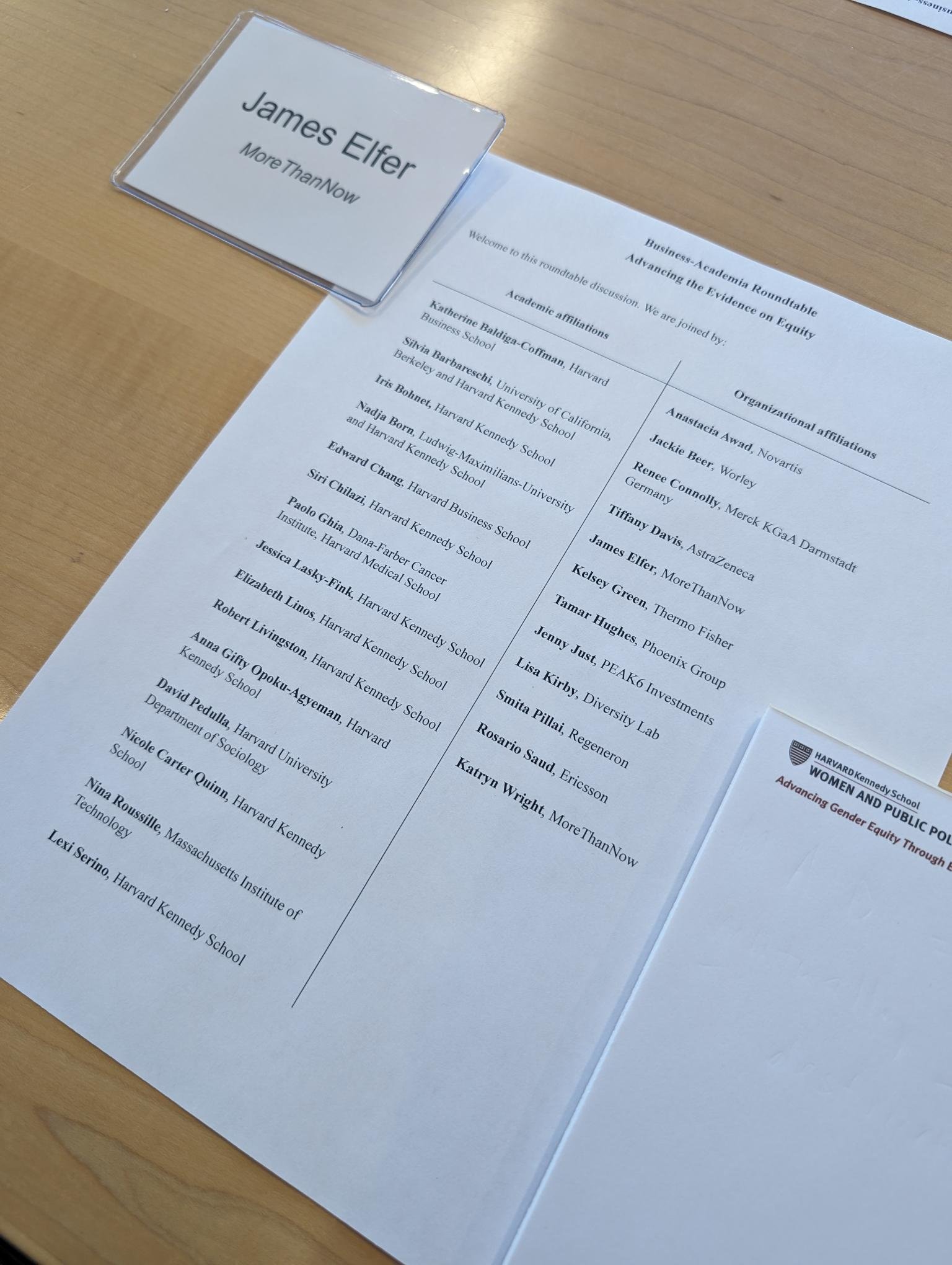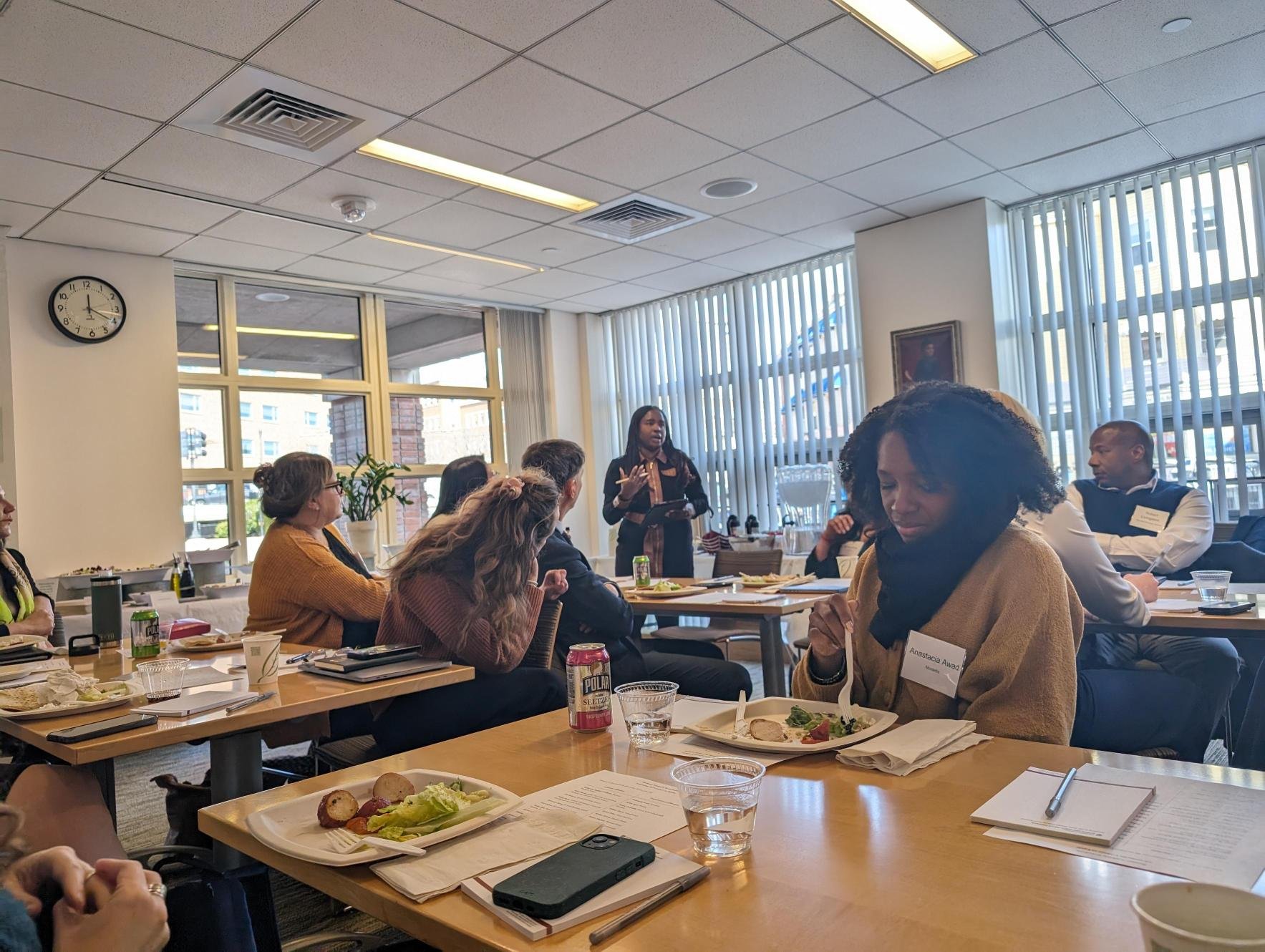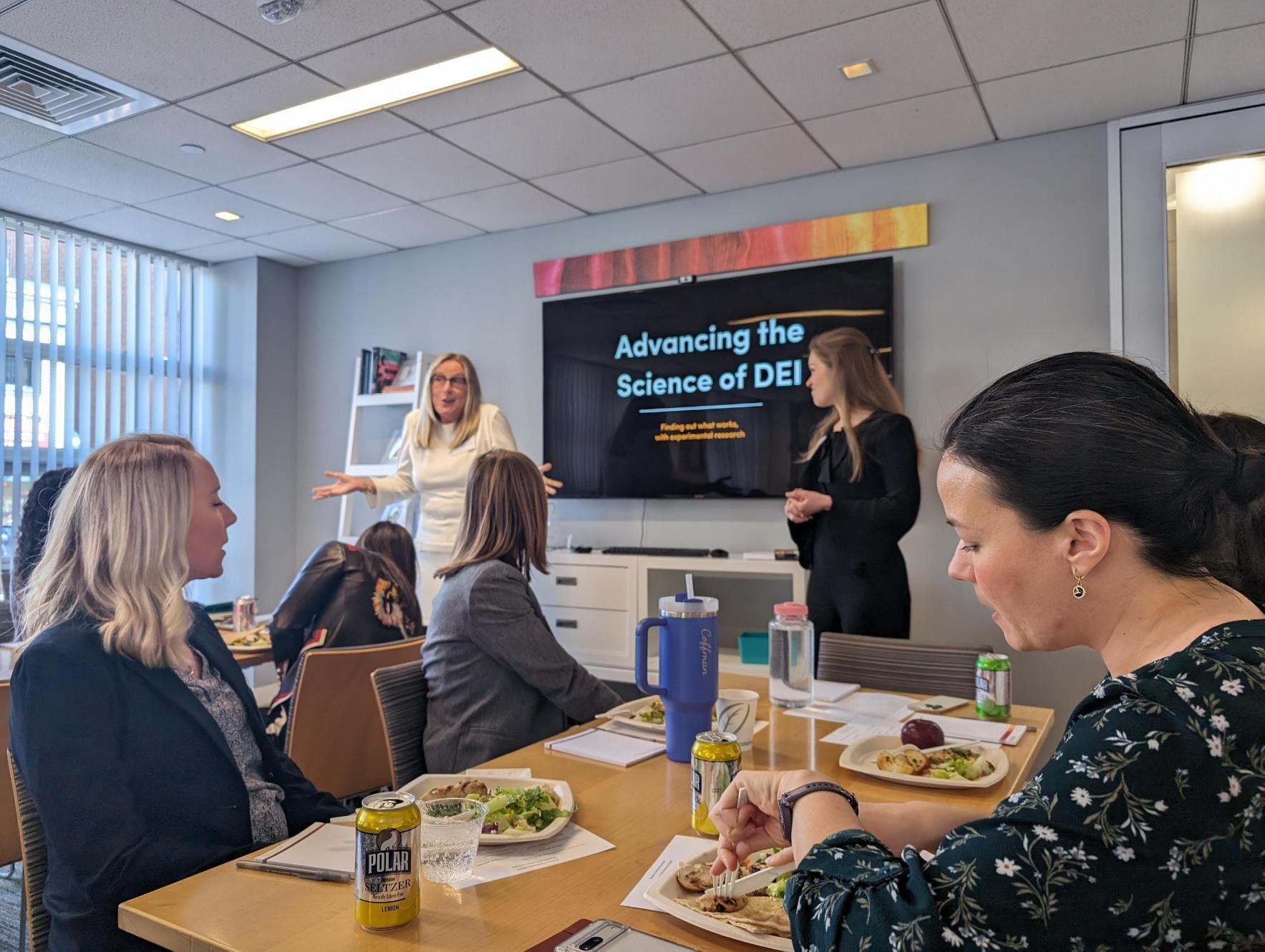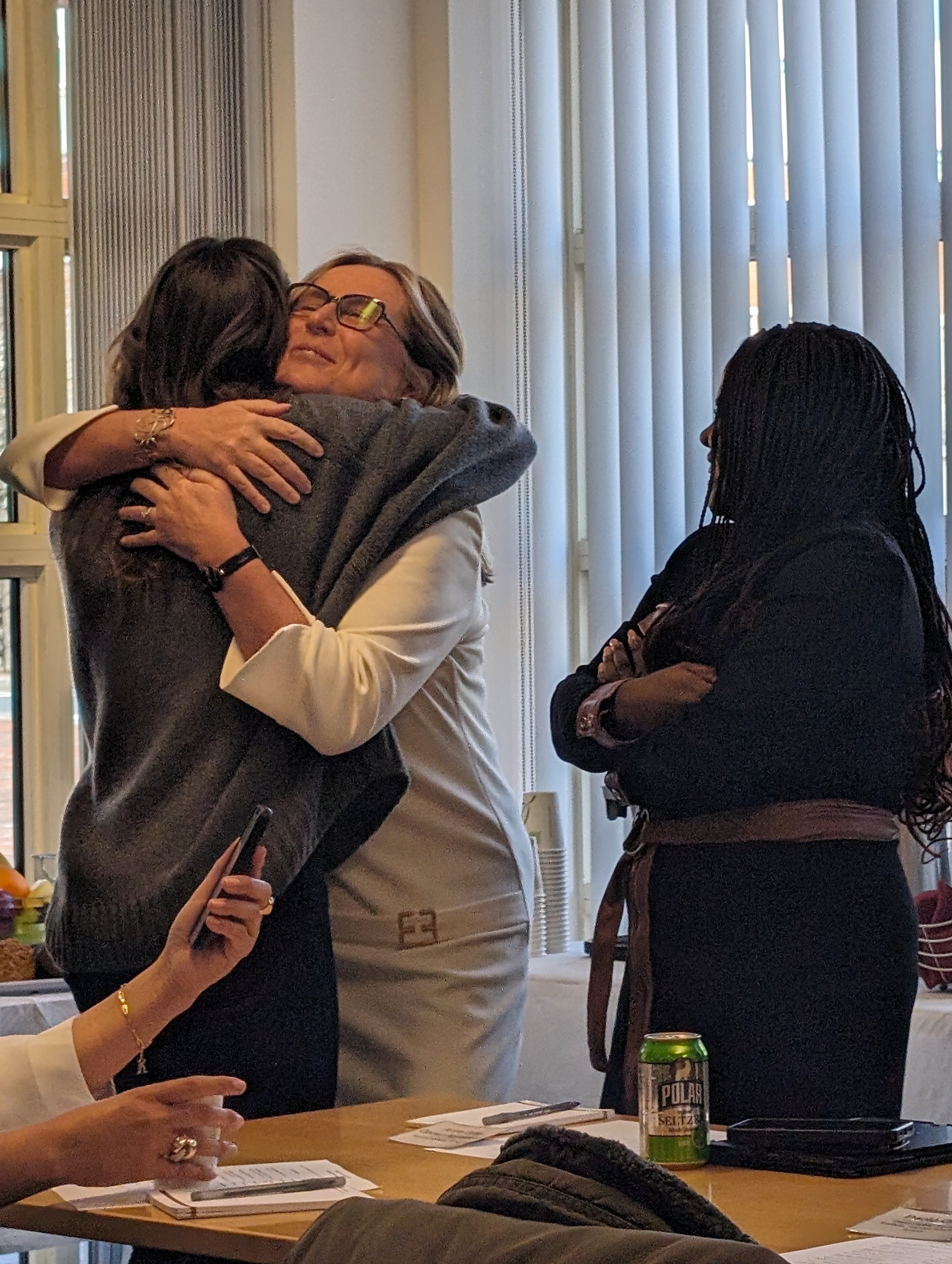The Science of DEI - Past, Present and Future
This article is an overview of the ‘Advancing the Science of DEI’ roundtable at Harvard Kennedy School on the 19th March 2024. The day brought together pioneering DEI directors and academics to push forward the science of diversity, equity and inclusion at work.
By Katryn Wright and James Elfer, with thanks to Siri Chilazi and Iris Bohnet at Harvard Kennedy School.
The session began with a simple challenge: we still don’t know enough about what works to debias decisions in the workplace. To bring the consequences of that reality to life, we presented a Randomised Controlled Experiment on Unconscious Bias Training conducted in 2019 by our collaborator Professor Edward Chang and colleagues, showing minimal impact on behaviour change. While most organisations are now aware of the ineffectiveness of this initiative (but typically after many years and $millions in investment), the majority continue to place faith in alternatives that are grounded in the same assumption: that we can train and/or inspire people to behave more inclusively.
Next, we presented new evidence that continues to challenge this view, from one of the first scientific experiments on Inclusive Leadership Development at Phoenix Group. Alongside our academic collaborators, we measured a series of three inclusive behaviours following the training and found no difference between treatment group of leaders who took part and a control group who did not. This is despite the training being highly-rated by those who attended, an outcome many will celebrate as success in the wake of these types of programmes.
As this evidence is consistent with a strong body of literature on behaviour change in DEI, we predict the results would extend to other initiatives that rely on training or development programmes as a route to progress.
Introducing the behavioural alternative…
The behavioural model of DEI change is more precise, targeting specific, measurable behaviours and decisions using in-the-moment interventions. You can read more about that approach in Incorporating DEI into Decision Making, our Harvard Business Review article with Edward Chang, Siri Chilazi, Cansin Arslan, Oliver Hauser and Iris Bohnet. But we would extend the model to inclusive culture by improving day-to-day experiences like 121s, team meetings, onboarding, and work allocation. We shared our evidence on the effect of this approach, from talent acquisition experiments with Worley and Ericsson, performance, feedback and goal setting experiments with Nationwide, AstraZeneca and Ericsson, and inclusive culture experiments with Novartis, Phoenix Group and Regeneron. We also presented a deep dive into two of these studies to bring their impact to life:
Inclusive Hiring at Ericsson
One of our most effective trials was an intervention aimed at hiring managers who were about to screen CVs. In a large-scale Randomized Controlled Experiment (7500 managers), we tested a 5-minute inclusive hiring video that managers viewed as they made decisions about who to invite to interview. In short, we found a 14-27% increase in women and non-nationals in comparison to the control group, which encouragingly, converted directly to actual hires and more diverse representation at Ericsson.
Psychologically safe 121s at Novartis
To illustrate how we use the same model to improve inclusive culture, we walked through a recent experiment at Novartis, run in collaboration with Silvia Castro, Maria Guadalupe and Florian Englmaier. We started with the idea that the 121 is a great place to change the interaction between employees and managers, and improve cultural features including openness, well-being, psychological safety, and goal clarity. We randomised 1000 managers and 7000 employees into three groups, finding that those who were encouraged to adapt their conversations to the individual needs of employees over 12 weeks were significantly more likely to report higher levels of psychological safety in the next round of engagement survey feedback.
The afternoon sessions and our next steps.
In the afternoon, our leaders and academics separated into groups to explore research questions in three primary themes: Broadening the talent pool, feedback and performance management, and inclusive culture and experiences. The task was to explore where organisational priorities meet the cutting edge of DEI science, and then embark on a whole new portfolio of experiments together over the next 12 months.
This is where you come in. We’ll only know what works in organisations, when we conduct research in organisations. To that end, we call on more leaders to join this community and advance the science of DEI. If you are in a position to run trials like the above, please get in touch with us below and we’ll arrange some time to speak.
